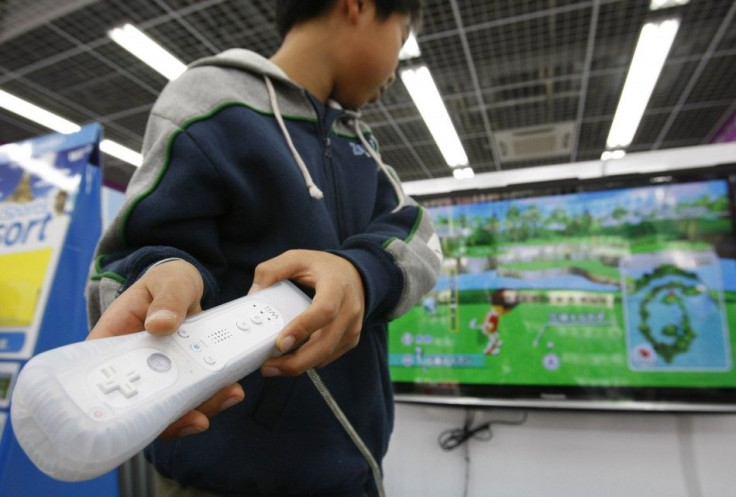Active Video Games for Kids May Not Mean More Exercise

All that virtual boxing, bowling and dancing along with video game systems might not be helping kids meet their daily exercise requirements, a new study suggests.
In the report, kids who were given so-called active video games to play on a Nintendo Wii didn't end up logging any more moderate or vigorous physical activity than those given games they could play sitting on the couch.
Researchers said that it's still possible playing active Wii games instead of other video games or simply watching TV could mean youngsters burn a few extra calories.
But, is the Wii going to really contribute to getting those sixty minutes of physical activity (a day)? I don't think it will, said Jacob Barkley, an exercise scientist from Kent State University in Ohio who didn't participate in the new research.
Some public health researchers have hoped that active video games might be an alternative to outdoor play and sports for at least some of the physical activity kids need -- especially for those who live in unsafe neighborhoods where playing outside isn't always an option.
To try to see if that's the case, researchers from Baylor College of Medicine in Houston, Texas, designed every kid's dream study: they passed out Wii consoles to 78 kids who didn't already have one, and gave half the kids their choice of active game -- such as Wii Sports or Dance Dance Revolution-Hottest Party 3 -- and the other half their choice of inactive game, such as Disney Sing-It Pop Hits or Super Mario Galaxy.
Halfway through the study, the kids, all nine to 12 years old and above average weight, got their choice of a second game from the same category as their first.
Tom Baranowski and his colleagues tracked the youngsters for 13 weeks, testing their physical activity levels with a motion-measuring device called an accelerometer.
Participants wore the devices on a belt during four different week-long periods throughout the study, which allowed the research team to determine when they were sedentary or lightly exercising and when they were engaged in moderate-to-vigorous exercise. Kids were generally good at complying with those instructions because if they did, they got to keep the Wii after the study was over.
Accelerometer logs showed that throughout the study period, kids with the active games didn't get any more exercise than those given inactive video games.
At weeks one, six, seven and 12, kids in the active game group got an average of 25 to 28 minutes of moderate or vigorous physical activity each day -- compared to between 26 and 29 minutes in the inactive video game group.
There was also no difference in minutes spent doing light physical activity or being sedentary during any week the researchers monitored, they reported Monday in the journal Pediatrics.
We expected that playing the video games would in fact lead to a substantial increase in physical activity in the children, Baranowski told Reuters Health.
Frankly we were shocked by the complete lack of difference.
Baranowski said his team couldn't tell if kids just didn't end up exerting much energy playing the active games, or if they compensated for exercise they got playing Wii with less exercise at other points in the day.
Though the results represent a single experiment and aren't definitive, he said, Our study indicates that there's no public health benefit from having those active video games.
Nintendo was not available for comment before deadline.
It's still possible that kids playing active Wii games burned a few extra calories during their gaming sessions that the movement device didn't pick up on -- for instance, if they were moving their arms a lot in a boxing game, Barkley said.
Over the course of a year, he said, playing an active instead of totally inactive video game could translate into a couple extra pounds of weight loss -- or fewer pounds of weight gain.
Maybe the Wii isn't going to increase physical activity a whole heck of a lot, Barkley told Reuters Health. But it might increase caloric expenditure a little bit more than a traditional sedentary video game, and if you do that on a daily basis that could have a cumulative effect that might be beneficial.
Kevin Short, who has studied exercise and video games at the University of Oklahoma Health Sciences Center in Oklahoma City, agreed.
The Wii could serve as a potential replacement for sedentary screen time, like TV or other video games, he said.
If we could replace some of that time when they're just sitting still and not moving... with something active, that may provide some benefit, Short, who wasn't involved in the new study, told Reuters Health.
But, just because you can play soccer on the Wii, doesn't mean you should stop playing it outside.
SOURCE: bit.ly/jsoh2P Pediatrics, online February 27, 2012.
© Copyright Thomson Reuters 2024. All rights reserved.





















